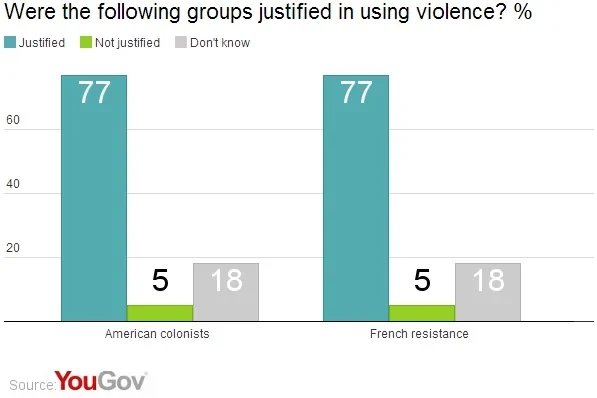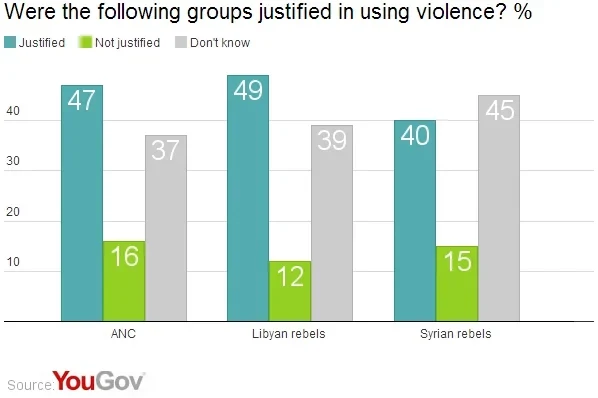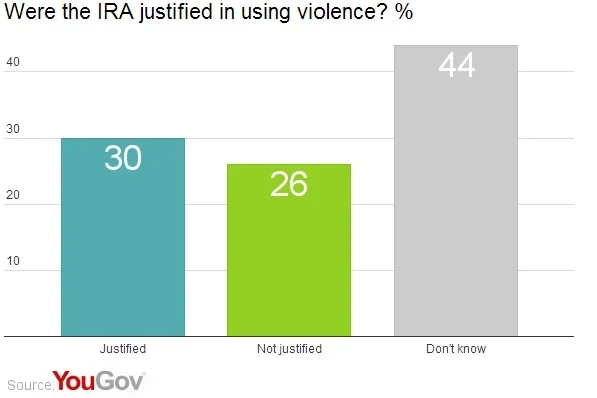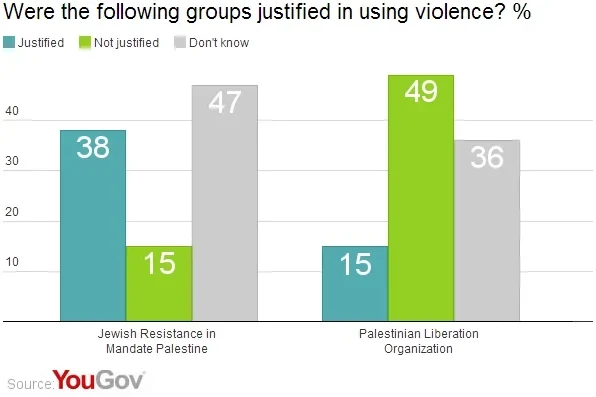Most people think that the founding fathers were justified in their violent rebellion against the British government, but few apart from the French Resistance enjoy such widespread support.
The struggle against apartheid in South Africa, the fight against the British in colonial America, and the civil war in Libya to overthrow the dictator Muammar el-Qaddafi all involved the use of violence against established governments. Americans in the latest Economist/YouGov Poll – think resorting to force in these situations was justified – though by varying margins and varying degrees of certainty.
Approval of using violence to achieve certain goals is greatest, of course, when it is about American activities or the activities of those allies in a war involving the U.S. More than three in four say the American colonists were justified in using violence against the British monarchy in the fight for independence. However, one in twenty disagree. A similar percentage of people agree that the use of violence by the French Resistance Movement during the World War II against the German Occupation government was also justified.

In both these cases – and in most others – women and those with less education, are more likely to not make a choice. But otherwise, there is very little difference between demographic groups.
Those events are part of history. More contemporary events as well as historic events that don’t have such a clear link to the United States, leave more American unsure about the justification for the use of violence, and more likely to oppose it. 16% believe the use of violence by the African National Congress against apartheid in South Africa (a sometimes violent struggle in which the late Nelson Mandela once participated) was not justified, 12% say that about the rebels in Libya, 15% about the current struggle in Libya. In all of those cases, less than half express the opinion that the use of violence could be justified.

There are almost no partisan differences when it comes to judging the value of violence in those five instances, and there also is no partisan difference when Americans look at the Irish Republican Army’s fight against the British during the “Troubles” during the twentieth century in Northern Ireland. But nearly as many Americans think the use of violence as a tactic by the IRA was not justified as say it was. There is more support in the Northeast, and less support in the South and Midwest.

Americans with an opinion accept the use of force by the Jewish Resistance movements against the British Mandate before the establishment of Israel – and reject the use of violence by the Palestine Liberation Organization against Israel today. But more than a third are unsure about justifying the PLO’s actions, and nearly half are not sure about the Jewish Resistance.

In these cases, Republicans are far surer than Democrats of their positions: Republicans say the violence of the Jewish Resistance movement was justified by 49% to 11%. 66% of Republicans believe the use of violence by PLO against the government of Israel today is not. Only 7% think it is.
Full results can be found here.
Economist/YouGov poll archives can be found here.








